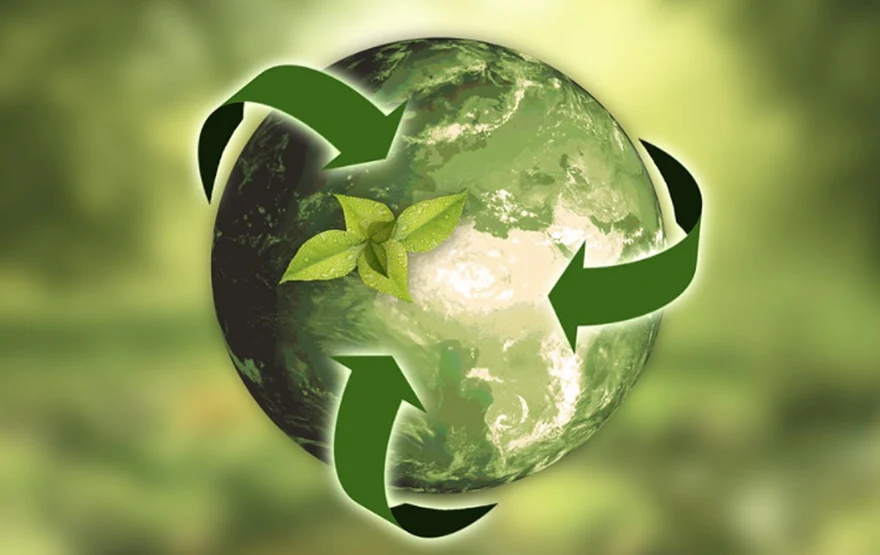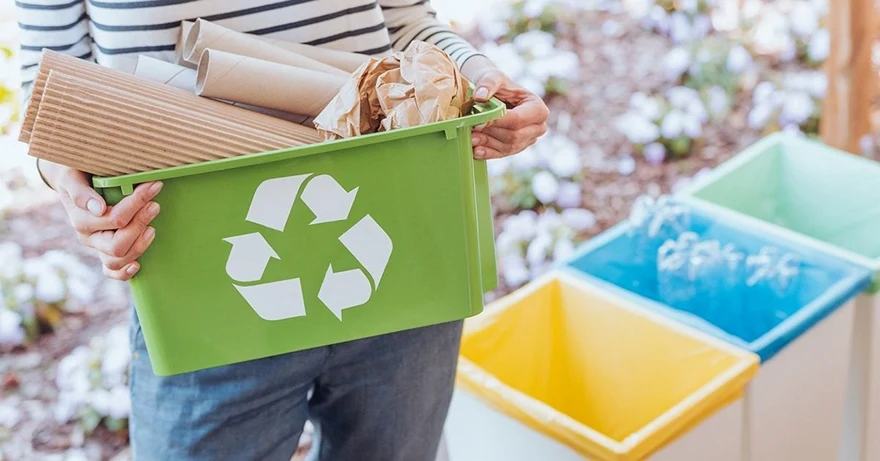Recycling is a word that became “fashionable” in the early 2000s. In the era of rubbish flooding us, and above all plastic, people should pay attention to product packaging. These are the most common problems after the product has been used up. Their storage is problematic, and many people just throw plastic on the street, in the park, into the water or on the route of the mountain trail. It is good that companies are aware of such behavior and pay more and more attention to the materials from which the packaging is made, as well as reusable products. Recycling of paper, glass and other materials reduces waste and protects the environment. These are not its only advantages.
Why is recycling so important?
Recycling is the process of transforming materials, raw materials or waste products into new materials or items. It is a great alternative to standard waste disposal, saving resources, energy and the environment. The concept of recycling was legally regulated only at the end of 2012 under the Waste Act. It replaced the concept of ‘recovery’ and was defined as follows:
[…] It means recovery where waste is reprocessed into products, materials or substances used for their original purpose or other purposes; this includes the reprocessing of organic material (organic recycling) but does not include energy recovery and the reprocessing into materials that are to be used as fuels or for backfilling. ‘
– we read in the Waste Act of December 14, 2012.

The principle of recycling is simple – the more we process, the less waste goes to landfills, incinerators and, above all, to the natural environment. By reusing aluminum, paper, glass, plastics and other materials, companies can reduce production costs and be environmentally friendly.
What are the advantages of recycling? They can be summarized in several points:
- Conservation of natural resources – on Earth we do not have endless natural resources, so man should save them for future generations. For example, recycled paper protects forests that provide oxygen. In turn, the processing of metals allows for a reduction in the extraction of new ore.
- Save money – recycling waste is often cheaper than collecting and disposing of waste. It is also cheaper than the extraction of new raw materials and, for example, the construction of a new mine for this purpose. The more raw materials a company processes, the more money it will save for the benefit of the planet.
- Environmental protection – this is one of the most important points. Recycling helps to reduce deforestation and also reduces the amount of residual waste that destroys flora and fauna. Plastic thrown away in the forest is a threat to animals and all wildlife.
- Energy saving – in the age of expensive raw materials, including energy, saving electricity is a very important area supported by recycling. It is worth remembering that producing products from recycled materials requires less energy than from raw materials. For example, producing with recycled aluminum cans uses 95 percent less energy than producing the same amount of aluminum with bauxite.
- Lower carbon dioxide emissions – it is related to energy saving, which reduces the carbon footprint and CO2 emission to the atmosphere.
- New jobs – this industry needs drivers, mechanics, sorters and technicians.
- Educating people – it’s about environmental awareness. Knowledge of recycling allows you to reduce the amount of waste to the environment. Awareness of the risks that may be caused by inadequate management of raw materials or materials allows you to appreciate the advantages of product processing.
Read Also: Extraterrestrial Life – What Technologies Do I Need to Find It?
What can and can not be recycled
It’s very important to understand what can and cannot be recycled. This knowledge will strengthen our enthusiasm for sorting rubbish, which will go to the sorting plant and then be recycled. It is also worth remembering that in order for an item to be recycled, three conditions are often required:
- Technology for processing things, materials or raw materials should be available on the market,
- Processing a material, product or raw material must be less expensive than buying a new one from another source,
- Processed products need to find a buyer.

What can be recycled? Here are the most important materials, raw materials and everyday items:
- Dry paper, e.g. newspapers, envelopes, notebooks, magazines,
- Cartons,
- Glass bottles and jars,
- Metal containers, including tin, aluminum and steel cans, e.g. Coca-Cola or Pepsi cans,
- Food waste – can be transformed into e.g. compost,
- Batteries – which require a special place for storage,
The following are certainly not suitable for recycling:
- Wet or greasy paper, including paper plates, used paper towels, toilet paper, tissues or diapers, book covers, which are often made of plastic,
- Styrofoam,
- Broken bulbs, mirrors and ceramics
- Foil and foil-like products, e.g. plastic bags, disposable foil pouches or bubble foil,
- Construction and demolition debris,
- Electronic waste, e.g. smartphones,
- Stickers, receipts, wrapping paper
Every modern household should be equipped with appropriate waste bins with the basic division into paper, glass, bio and other waste. Let us not allow future generations to be drowned in the rubbish. Let us take care of their peaceful and clean future.
Source: cnet, rubicon, stanford
